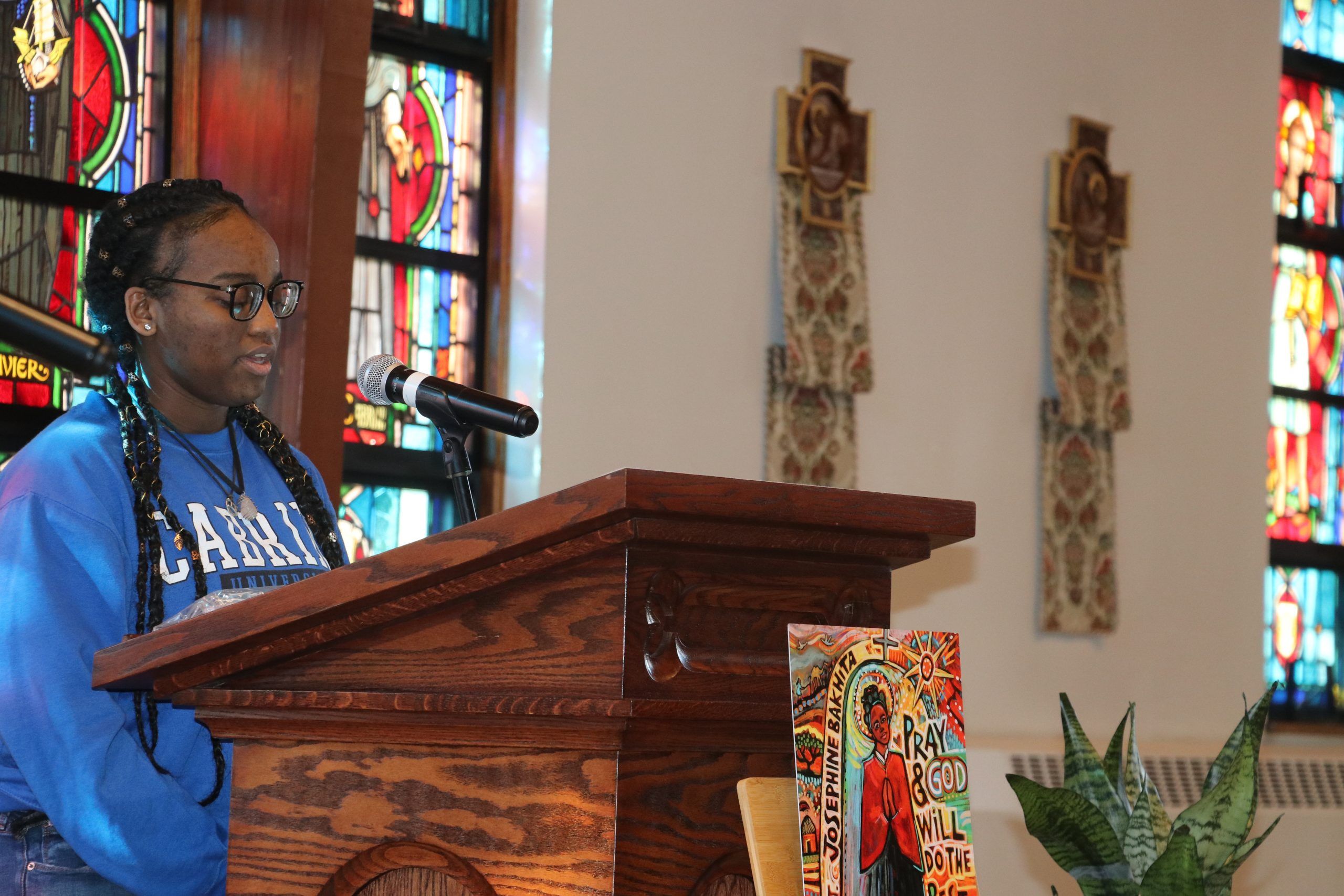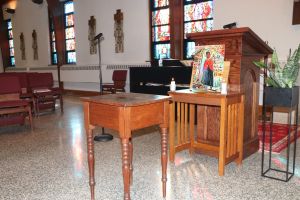
Motioning to a small, wooden table that typically wouldn’t get much attention, Armani Parker spoke passionately about its significance.
“This isn’t just a table; this is apart of our ancestry,” said Parker, president of the Black Student Union, said.
The table came from Vachel Catlin, who traveled through the Underground Railroad with just one piece of furniture. Now, 200 years later, that same table resides at Cabrini.
On Tuesday, Feb. 8, an event was held at the Bruckmann Chapel that celebrated the inauguration of Catlin’s table at the university. As part of Cabrini’s Black History Month, campus leaders held the event to honor the Underground Railroad by telling the story behind the valuable piece of furniture that was donated to the university by the Catlin family.
While the table was the focal point of the event, there was a layout of guest speakers. Dr. Lailah Dunbar-Keeys, director of the office of the DEI and Belonging, gave the introduction and the libation. The ritual was derived from Africa, and Dunbar-Keeys emphasized that the first trace of humanity is traced to central Africa.
After escaping to the north, the Catlin family settled in Western Pennsylvania. Vachel’s son, George opened up a barbershop there. During the daily operations of the shop, the table was always sitting in the window overlooking the town of West Newtown, Pennsylvania.
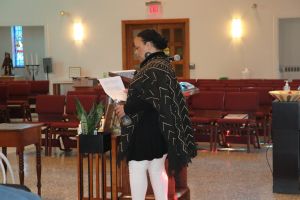
George retired after more than 70 years as a barber and left his family table to a longtime friend and customer, John Sarnosky, who maintained it in his home until his death in 1980. At the time, his grandson, John Bachkay, who was studying to be a priest at Saint Vincent Seminary in Latrobe, Pennsylvania, was given the table. In 1983, Fr. John was ordained as a priest for the Pittsburgh Diocese. He took the table with him to all of his church duties. He gave the Catlin family table to Cabrini University after his retirement in 2021.
The Rev. David Driesch, university chaplain, gave his remarks on the importance of the table being donated to the university. “After many years of traveling this table has now found its home and we are honored to possess something with as much historical significance as this table,” Driesch said.
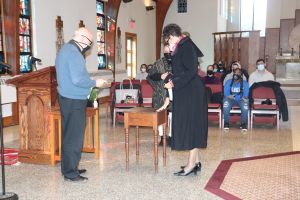
Perry Brisbon, vocal instructor and choir director, sang two breathtaking spirituals, “A City Called Heaven” and “Witness.” Negro spirituals were a form of American folksong sung by Black Americans (mostly among enslaved blacks) dating to the early 1600s to late 1800s.
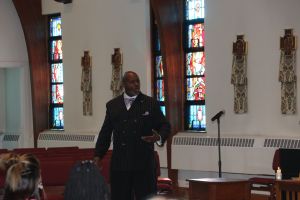
Spirituals combines African cultural legacy with the experiences of slavery and community of people in bondage initially during the transatlantic slave trade—the greatest and most horrific forced migrations in recorded human history. Music was vital to people’s lives in Africa, with music making pervading significant life events and daily routines. The white colonists of North America, on the other hand, were worried and disapproved of the slaves’ African-infused form of worship, which they regarded idolatrous and barbaric. As a result, the gatherings were frequently prohibited and had to be held in secret.
“Spirituals were and are an important aspect of uplifting black Americans and expressing the struggles and aspirations we were going through via singing,” Brisbon said.
African Libation is a ritual pouring of water. The significance is that of a West African tradition that has passed through the enslaved Africans on their travels to America. It is the meaning of everlasting and continuous life. Dunbar-Keeys welcomed everyone to participate in the ritual by saying “Ashe” after pouring water over a plant while saying the names of the ancestors. Ase or ashe (from Yoruba å) is a Yoruba philosophical notion that describes the power of the Yoruba of Nigeria to make things happen and for them to prosper.
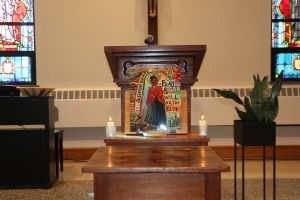
There are many Ashe meanings. It makes each and every one of us, gives us our movement, gives us our breath, grants our speech and could mean Amen.
“It pays respect to our ancestors as we pay respect to those ancestors who have touched this table, such as, St. Josephine Bakhita and all of the people, who cause of their lives we are here because of them,” Dunbar-Keeys said.
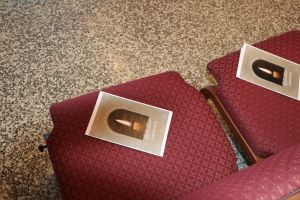
Dunbar-Keeys highlighted that it is important to acknowledge God and our ancestors before doing this ceremony, and to give them the only thing they want, to be remembered.
“The big key takeaway is the impact our ancestors had on the society we live in today,” Parker said.
Parker presented the students with a historical perspective on the table. It reminds us of what black people had to go through to obtain even the tiniest of belongings in their quest for freedom.
Starting at Cabrini, a new tradition will be established in which the tiny wooden table will remain in the chapel before being transported throughout the many offices at Cabrini, as it has done throughout history. The significance of the table will allow Cabrini to have a strong sense of community.

